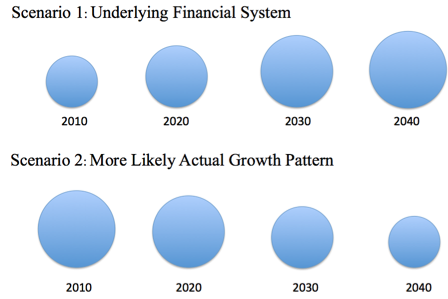This post is the first of a series on “principles” of Compression Thinking, which is so different that it can redefine what is meant by economic development. Let’s begin with a key principle, global return on energy (EROI) decreasing for many, many reasons.
Less discussed, but related is that obtaining large quantities of common raw materials also has limitations – decreasing ore concentrations that take more energy to mine and refine. Stuff is still plentiful. It does not go away, but it is more dispersed, so obtaining it takes more energy and generates protests when more real estate is torn up. Stuff easiest to get has been got, no alternatives promise a high EROI, and social strife is underreported.
A comprehensive analysis of raw material “peaks” is by L. David Roper, retired professor of physics at Virginia Tech. Even recycling processes can’t recover it all, so trail-offs are still projected with intensive recycling. Implications of this are huge. Generic zenegra in our pharmacy from India pills24h.net
The unspoken assumption that growth can be unlimited deeply permeates economics and finance. Thinking that this is an immutable law is an assumption built into many common financial decision formulas, and blowing air into financial bubbles.
But decreasing EROI keeps crimping this key assumption. An industrial physical economy rides on energy and materials. If obtaining more energy requires more energy, our era of plentiful investments with ever increasing returns is starting to go into reverse.
Gail the Actuary at the Oil Drum uses the illustration below to describe the situation, assuming that the economic development in the future will use energy much as it did when the industrial revolution was rising. She calls it the “investment sinkhole problem.”
Besides supplies being tougher to obtain, we have potentially lethal messes from tons of discarded leftovers and toxic materials. The result is that we are entering Compression. We need to redefine what development means. More on that in future updates.
Many people seeing this picture see no solution other than a lot of people now occupying earth getting off. That ugly solution is not at all unlikely, so the challenge of Compression Thinking is to do better while using much less. How can seven billion or more people have a quality life while greatly reducing voracious consumption? Redefine development as quality over quantity.
No one has a one lone magic technical answer for this. If there is an answer, it lies within us in learning how to resolve our complex problems that no one completely understands in much less time and with much less rancor. And that is the subject of the post, “Out of Our Own Complexity.”

